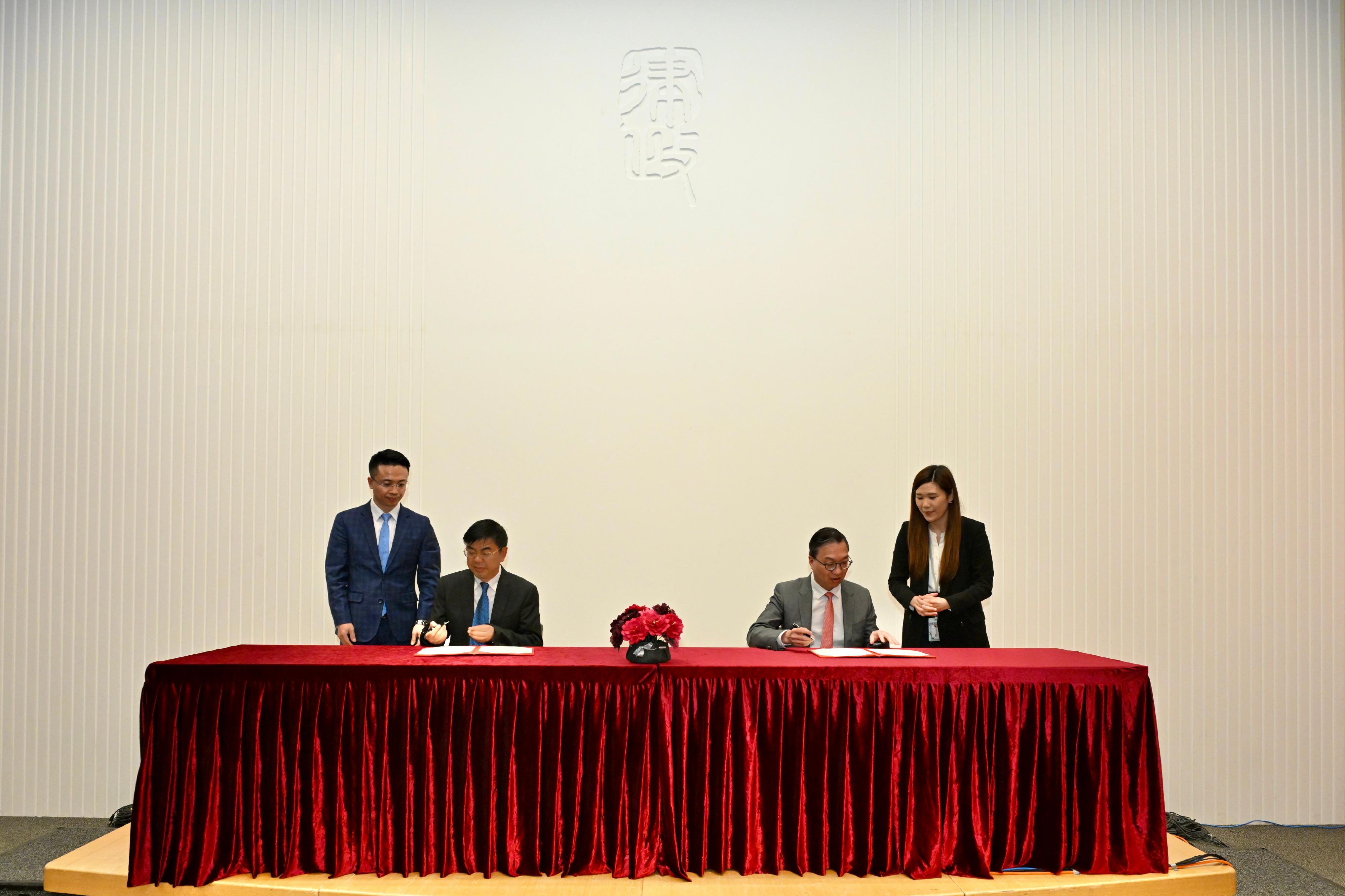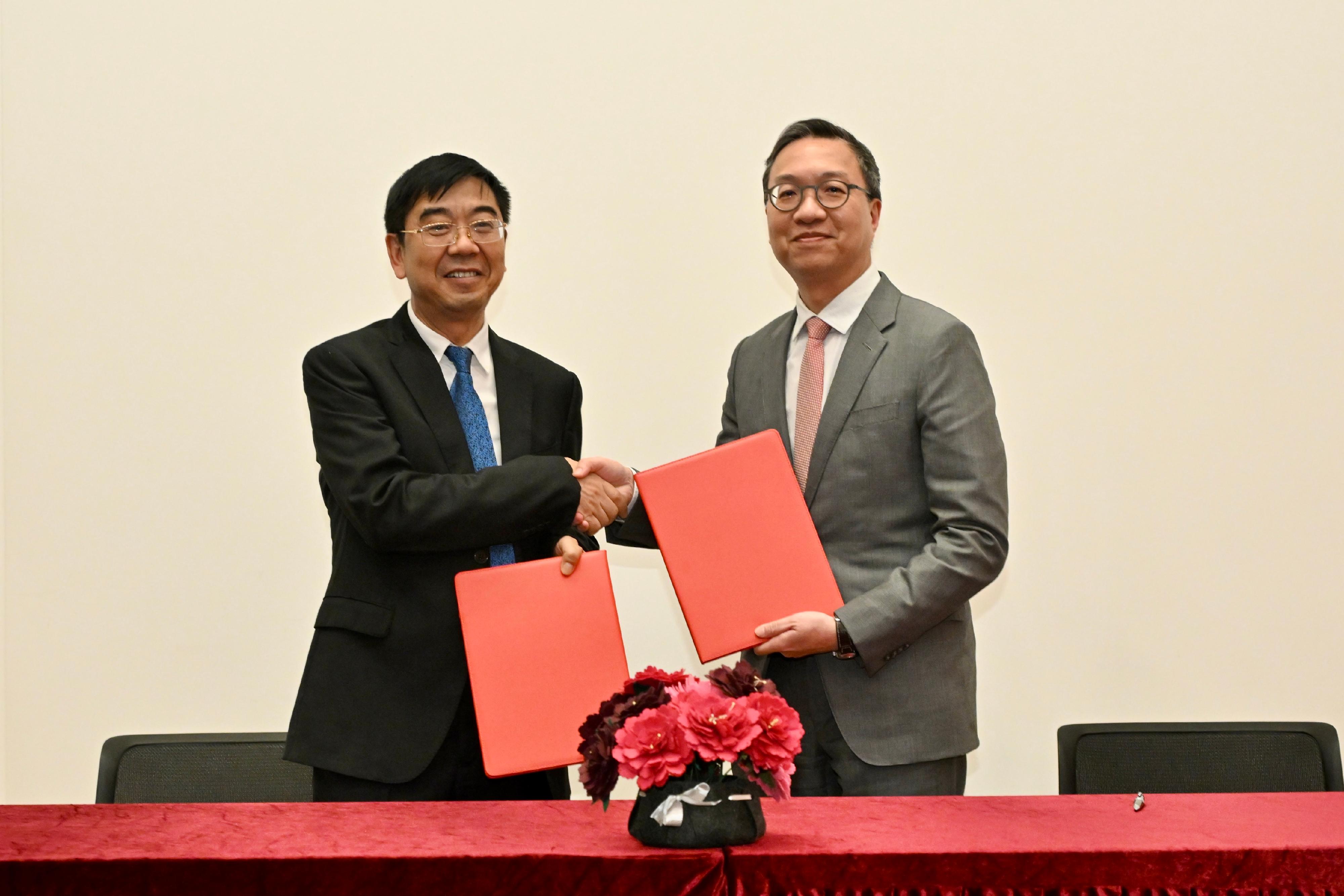LCQ1: Convention and exhibition venues in Kowloon East
Following is a question by the Hon Tang Ka-piu and a reply by the Secretary for Development, Ms Bernadette Linn, in the Legislative Council today (May 29):
Question:
It has been reported that some developers acquired the Kowloonbay International Trade & Exhibition Centre (KITEC) in 2021 and have recently applied to the Town Planning Board for redeveloping the KITEC into six residential buildings, one commercial building, and one mixed use building with retail and social welfare facilities. It is learnt that the KITEC will cease operation from July this year. In this connection, will the Government inform this Council:
(1) whether it has assessed the impact of the cessation of operation of the KITEC on the organisation of activities in Kowloon East (KE), such as those relating to culture, sports, tourism, performing arts and entertainment, as well as events such as conventions, exhibitions and banquets; whether there are indoor venues in KE that can accommodate such activities and events while the aforesaid redevelopment project is in progress; if so, of their locations, areas and capacities;
(2) as it is learnt that after the KITEC has ceased to operate, there will be a shortage of indoor comprehensive convention and exhibition venues of a large scale in KE, whether the Government has assessed if KE will fit its positioning as the second core business district under such circumstances; and
(3) whether it knows the area and year of commissioning of the convention and exhibition venue to be provided under the aforesaid redevelopment project; whether the authorities will require the developers concerned to provide a convention and exhibition venue with an area not smaller than that of the KITEC?
Reply:
President,
Kowloonbay International Trade & Exhibition Centre (KITEC) is of around 2.2 hectares, zoned as "Other Specified Uses" annotated "Trade Mart and Commercial Development". To reflect the planning intention that the site is primarily for exhibitions and ancillary commercial uses, the relevant Outline Zoning Plan (OZP) stipulates that a gross floor area (GFA) of not less than about 11 300 square metres shall be provided for exhibition related uses within the development. Currently, the provision of exhibition related floor area at the KITEC complies with this requirement.
In response of the Hon Tang Ka-piu's question, having consulted the Commerce and Economic Development Bureau and the Culture, Sports and Tourism Bureau, the Development Bureau's consolidated reply is as follows:
(1) and (3) Under the commercial redevelopment proposal submitted in 2022 and the latest planning application for proposed composite commercial and residential redevelopment, a GFA of about 11 300 sq m for exhibition related use would be retained by owner of the KITEC at the site in order to fulfil the requirement as stipulated under the OZP. In other words, according to the relevant statutory planning requirement and the two redevelopment proposals, the supply of exhibition facilities in Kowloon East would not diminish due to the redevelopment of the KITEC. According to the two planning applications submitted by the owner, the tentative completion year of the two redevelopment proposals is 2027 and 2028 respectively. As for when the KITEC will cease operation, it will be the owner's decision.
According to the KITEC's website, for rentable event space currently in the KITEC, there are mainly two Rotunda Halls that can accommodate 160 exhibition booths, and an entertainment performance venue that can host an audience of 3 600. Having regard the existing and upcoming cultural and sports facilities, as well as the scale of existing exhibition facilities in Hong Kong, we believe that some of the demand in the community for the existing facilities in the KITEC can be absorbed by other facilities during the redevelopment.
For example, the Kai Tak Sports Park, which is expected to open in the first half of next year, occupies an area of about 28 ha, including a 50 000-seat Main Stadium, a 10 000-seat Indoor Sports Centre and a 5 000-seat Public Sports Ground. Other than sports events, the Main Stadium can also host various large-scale cultural and entertainment events such as music concerts. The Main Stadium's design can provide a venue of different capacity, catering the needs of different events. Furthermore, there are other venues for hosting different types of cultural performance activities in Kowloon East, such as the East Kowloon Cultural Centre (EKCC), which will open in phases starting from this year. The Hall and the Theatre in the EKCC can host an audience of around 1 200 and around 550 respectively.
For conventions and exhibitions (C&E) venues specifically, there are currently two dedicated venues for large-scale C&E events, namely the Hong Kong Convention and Exhibition Centre (HKCEC) and the AsiaWorld-Expo, with a combined rentable C&E area of around 158 000 sq m, which host many large-scale international C&E events every year. Besides, Hong Kong also offers other venues, such as hotels and multi-functional facilities, catering for the needs of different events. The Government is also gearing up to build additional floor space for C&E venues near the existing HKCEC in Wan Chai North and at the AsiaWorld-Expo. These expansion developments will increase large-scale C&E area by more than 40 per cent to around 220 000 sq m.
(2) Although the current owner of the KITEC would provide 11 300 sq m floor area for exhibition related use as required under the OZP in both redevelopment proposals previously submitted, the mix of other uses of the two proposals greatly differ. The planning application that the Town Planning Board (TPB) approved last year involved a total GFA of around 165 000 sq m. Other than that for exhibition related use, the remaining 153 700 sq m of GFA was all for commercial use such as office, eating place/shop. For the planning application recently submitted, the proposed GFA is around 137 000 sq m, among which 63 per cent is for residential use, around 35 per cent is for commercial use including exhibition facilities, while the remaining 2 per cent is for community use, such as social welfare facilities and kindergartens.
The secretariat of the TPB is currently inviting public comments for the owner's latest planning application. The Planning Department will comprehensively assess the application in terms of planning and other technical considerations, as well as comments from relevant government departments and public comments, for the TPB's consideration having taken into account whether the proposed mix of use would be in line with the planning intention of the site; whether it would affect the positioning of Kowloon East as CBD2; the compatibility of the proposed residential use with the surroundings; and the demand for additional housing supply in the area, etc.

